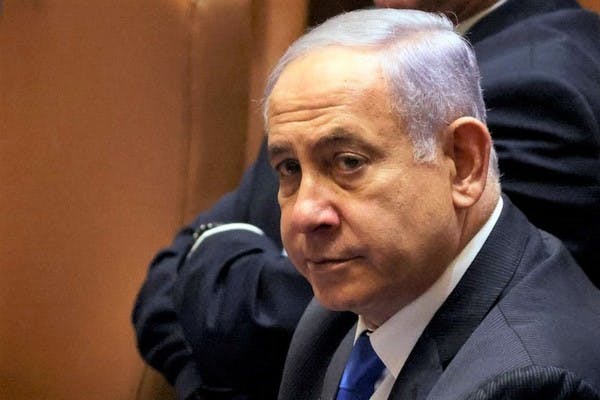Published: 6 February 2024
Last updated: 21 March 2024
The US is getting tougher with Israel, placing sanctions on extremist settlers and insisting hostage negotiations should address the post-war status of Gaza and revive the two-state solution.
US President Joe Biden is pushing a wholistic solution to the Israel-Palestine conflict, as part of the negotiations to release the hostages and end the war in Gaza.
The plan, dubbed the Biden Doctrine, would use Gaza negotiations as the springboard for a wider regional solution.
It would extend the Egyptian-Qatari proposal for the release of the hostages now on the table, which focuses on the exchange of hostages for Palestinian prisoners and ceasefires.
The fuller regional deal being pushed by the US would include:
- the establishment of a new government in the Gaza Strip to include the Palestinian Authority (PA)
- reviving negotiations for a two-state solution
- the normalisation of relations between Saudi Arabia and Israel
- the formation of a strong regional axis to counter Iran.
The key to the initial plan – how many prisoners, how long ceasefires – is still under negotiation, with Israeli Prime Minister Benjamin Netanyahu insisting Israel will not release thousands of terrorists or end the war as part of the deal.
Netanyahu said this week that Israel’s leaders had killed or seriously injured half of the Hamas terror group’s fighters and would achieve “complete victory” within months.
Over the past week, the US has stepped up its involvement in the Middle East. On Friday night it mounted airstrikes against Iran-backed militias in Syria and Iraq, in retaliation for an attack on a US base in Jordan.
It also sent a clear message to the Israeli right by announcing unprecedented financial sanctions and visa bans imposed on four extremist individuals implicated in violence against Palestinian civilians in the West Bank.
Secretary of State Antony Blinken is visiting Saudi Arabia, Egypt, Qatar, Israel and the West Bank this week, his fifth visit to the region since the Israel-Hamas conflict began on October 7.
The US is pushing for an agreement which would stop the war before Ramadan begins in the second week of March and make progress on the regional issues ahead of the US presidential election in November.
But many commentators believe the optimism projected by Biden’s aides is unrealistic.
Netanyahu has rejected the idea of reviving the two-state solution or including the Palestinian Authority in future government of Gaza.
There are increasing doubts that the Netanyahu government will survive long past the war, with his far-right partners poised to leave the coalition over a hostage deal. Biden’s continued incumbency is also subject to November’s election and the two leaders may simply try to outlast each other in the hope of a more sympathetic partner.
The viability of the US plan for the PA to govern Gaza is also questionable. The PA has limited support among Palestinians. In a recent public opinion poll by the Palestinian Center for Policy and Survey Research (PSR), some 90 per cent of respondents were in favour of the resignation of PA President Mahmoud Abbas, and 60 per cent called for the dismantling of the PA.
Even if Hamas is militarily damaged, it will remain a major player in Gaza.
The US is also reported to be studying options recognising a Palestinian state during peace process negotiations.
Among the options are the bilateral recognition of a Palestinian state, forgoing the US veto on the UN Security Council vote admitting Palestine as a full member state, and encouraging other states to follow Washington’s lead in recognition.
Australian Prime Minister Anthony Albanese this week mooted the possibility that Australia might recognise a future Palestinian state on the condition it was demilitarised.
A spokeperson for the Department of Foreign Affairs and Trade said Australia had strongly condemned the violent acts committed by extremist settlers against Palestinian civilians in the West Bank but they could not speculate on about potential sanctions or other measures.
READ MORE
Biden offered Netanyahu a lifeline, but Israel's prime minister still refuses to take it (Amos Harel, Haaretz)
Biden’s grand bargain: can a new Middle East emerge from the turmoil? (Julian Borger, Guardian)
Why the U.S. plan to sideline Hamas in post-war Gaza is doomed (Nabhan Khraishi, Haaretz)
Israel says half Hamas fighters taken out, Sinwar on run, as PM vows victory in months (Times of Israel)
What does Biden’s order against Israeli settlers mean and why did he do it now? (Chris McGreal, Guardian)
Anthony Albanese flags recognising Palestinian state could rest on it being ‘demilitarised’ (Guardian)





Comments
No comments on this article yet. Be the first to add your thoughts.